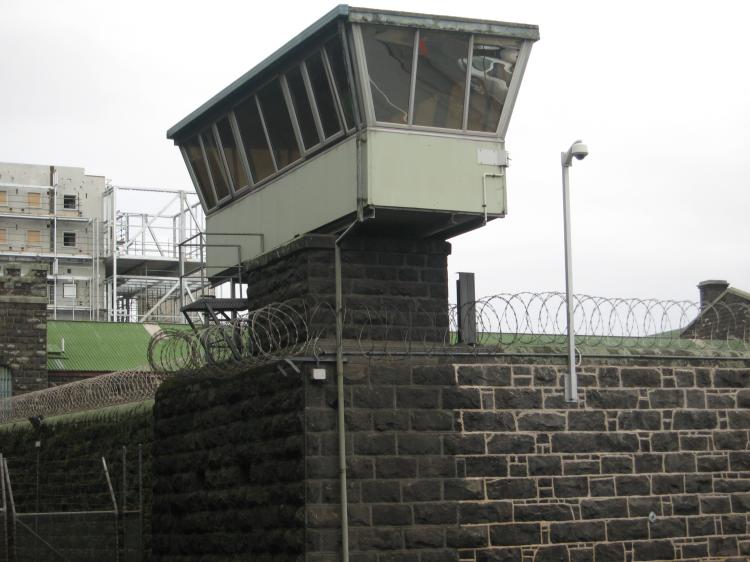Government tenders for privately managed prisons in New Zealand has sent the opposition parties checking the performance of the bidders in their management of overseas prisons.
Corrections spokesperson David Clendon says all the companies bidding to run Mount Eden Remand Prison have “skeletons in their closet.”
The Government has put out a tender for a new 1,000-bed male prison in Wiri, South Auckland, to be built and run on a public/private partnership (PPP) model which should be up and running by 2014.
The Mount Eden-Auckland Central Remand Prison (ACRP), which houses up to 360 prisoners, will also be run by a private contract manager.
Corrections Minister Judith Collins said in a press release in April that the PPP model should result in cost savings and better service delivery for prisoners.
All the companies currently bidding have had management issues, says Mr. Clendon, who wants public control retained but with changes to management and spending focus.
“Kalyx, for example, is managing prisons in the UK and they have had serious problems there with failing to control drug addiction, failing to control violence, bullying ...”
“Spending money on barb wire and concrete is really just assuming that we can’t manage in better ways.”
Cost savings means cutting back on numbers and staff paychecks, says Mr. Clendon, and the outcome will be prison personnel who aren’t as dedicated or qualified.
Not so, says Greg Newbold, criminologist and professor of Sociology at Canterbury University.
Private prisons must account for every penny they receive and meet very strict contractual terms. In order to guarantee excellent outcomes, PPP managers will be penalized for poor performance or receive bonuses for meeting the criteria.
He agrees that there have been some instances of abuse overseas but not in New Zealand.
Auckland Central Remand Prison (ACRP), which was run by the Australian GEO Group from 1999 to 2005, was an “exemplary” example, he says.
The Labour Party was ideologically opposed to private prisons. They commended GEO Group’s management of the ACRP but did not renew their contract.
Private prisons, with even some services for inmates, provides a win-win situation for prisoners, says Professor Newbold. “I will tell you categorically-the state provides nothing for remand prisoners.”
People will vehemently condemn private prisons when a single prisoner escapes or commits suicide, but time and again there are episodes of suicide, escape or abuse in state-run prisons for which the state is not held accountable.
Public perception is that contractors “are profiteering off the misery of prisoners,” says Mr. Newbold but there are a lot of services related to correction facilities that are already being supplied by contractors.
Minister Collins has said that PPP prisons were expected to perform as well, if not better, than existing prisons.
Corrections spokesperson David Clendon says all the companies bidding to run Mount Eden Remand Prison have “skeletons in their closet.”
The Government has put out a tender for a new 1,000-bed male prison in Wiri, South Auckland, to be built and run on a public/private partnership (PPP) model which should be up and running by 2014.
The Mount Eden-Auckland Central Remand Prison (ACRP), which houses up to 360 prisoners, will also be run by a private contract manager.
Corrections Minister Judith Collins said in a press release in April that the PPP model should result in cost savings and better service delivery for prisoners.
All the companies currently bidding have had management issues, says Mr. Clendon, who wants public control retained but with changes to management and spending focus.
“Kalyx, for example, is managing prisons in the UK and they have had serious problems there with failing to control drug addiction, failing to control violence, bullying ...”
“Spending money on barb wire and concrete is really just assuming that we can’t manage in better ways.”
Cost savings means cutting back on numbers and staff paychecks, says Mr. Clendon, and the outcome will be prison personnel who aren’t as dedicated or qualified.
Not so, says Greg Newbold, criminologist and professor of Sociology at Canterbury University.
Private prisons must account for every penny they receive and meet very strict contractual terms. In order to guarantee excellent outcomes, PPP managers will be penalized for poor performance or receive bonuses for meeting the criteria.
He agrees that there have been some instances of abuse overseas but not in New Zealand.
Auckland Central Remand Prison (ACRP), which was run by the Australian GEO Group from 1999 to 2005, was an “exemplary” example, he says.
The Labour Party was ideologically opposed to private prisons. They commended GEO Group’s management of the ACRP but did not renew their contract.
Private prisons, with even some services for inmates, provides a win-win situation for prisoners, says Professor Newbold. “I will tell you categorically-the state provides nothing for remand prisoners.”
People will vehemently condemn private prisons when a single prisoner escapes or commits suicide, but time and again there are episodes of suicide, escape or abuse in state-run prisons for which the state is not held accountable.
Public perception is that contractors “are profiteering off the misery of prisoners,” says Mr. Newbold but there are a lot of services related to correction facilities that are already being supplied by contractors.
Minister Collins has said that PPP prisons were expected to perform as well, if not better, than existing prisons.







